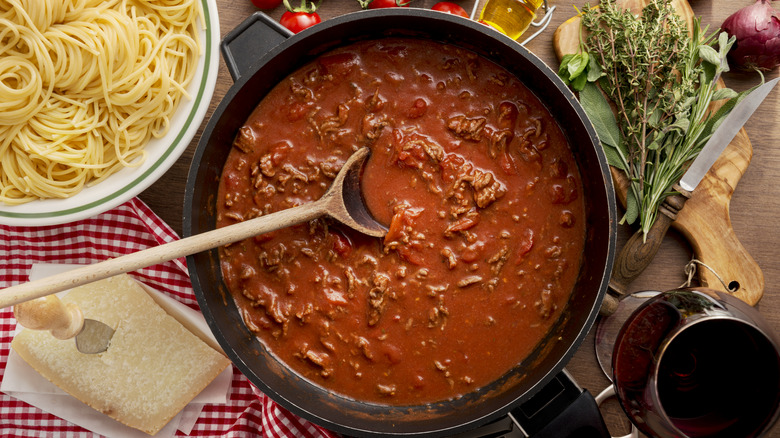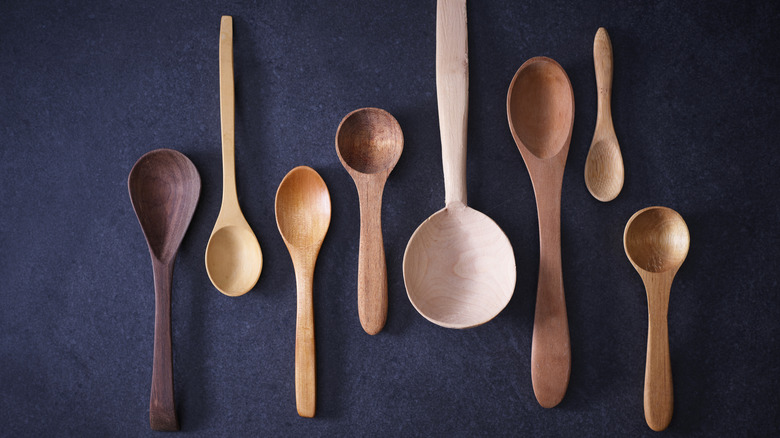Why A Wooden Spoon Is Essential For Making Sauces
Sleek, modern kitchen gadgets may be the stars in today's gift guides and influencers' kitchens, but it's often the kitchen tools that were popular 50 years ago that work best. For example, take the trusty wooden spoon. Your grandma certainly had one near her stove at all times, and your parents probably had one on standby as well. In fact, this cooking utensil has been a mainstay in kitchens since at least ancient Egypt. It might be time you got back to basics.
Not only is there something inherently nostalgic about stirring a bubbling pot of sauce with a wooden spoon, science shows that using this utensil can make a real difference. For instance, when cooking acidic sauces, wood's nonreactive material won't impart any harsh metallic flavors like a metal spoon would. If this wasn't reason enough to keep yours handy, a well-loved wooden spoon might even slightly improve the taste of the sauce you're cooking. Much like a carefully seasoned cast iron skillet that only gets better with time, a well-used spoon can hold on to notes of flavor, imparting a certain something to a basic tomato sauce or roux in a way modern cookware never could.
Beyond that, wooden spoons are gentle on pans and can withstand the vigorous flipping, stirring, or mashing that sauce-making requires. Best of all, wood doesn't conduct heat, so you won't be yelping in pain when you grab a spoon that's been left in a pot of bolognese.
The benefits of using a wooden spoon
Another reason to use wood versus plastic or metal? Not having to worry about any potential negative health risks. The modern household has plenty of materials that can contain a slew of health-harming chemicals and substances, and unfortunately, many of these forever chemicals hide out in the kitchen. If you've been making your béchamel or marinara sauce with that same black plastic spatula or spoon you've had since before college, there's a chance your dishes could contain BPA or close cousins of the chemical. Similarly, using metal spoons or utensils on a Teflon-coated non-stick cooking pan produces more than just a nails-on-a-chalkboard sound. Sauce making can require a lot of scraping and scratching which can in turn cause chemicals to flake off into your food and, thus, into your body. By using an old-school wooden spoon, you eliminate the risk of ingesting chemicals via the utensil itself or from friction with a pan.
So go ahead and purchase yourself one, or hit up your local yard sale, as using second-hand wood is totally safe. Wood has natural antibacterial properties, and its porous nature is actually a positive, as it means any bacteria that enters the wood dies off naturally. Wooden spoons can be a nearly lifelong investment if you remember to keep them out of the dishwasher, give them a light buffing with lemon and baking soda as needed, and moisturize them with mineral oil when they're starting to look dried out.

